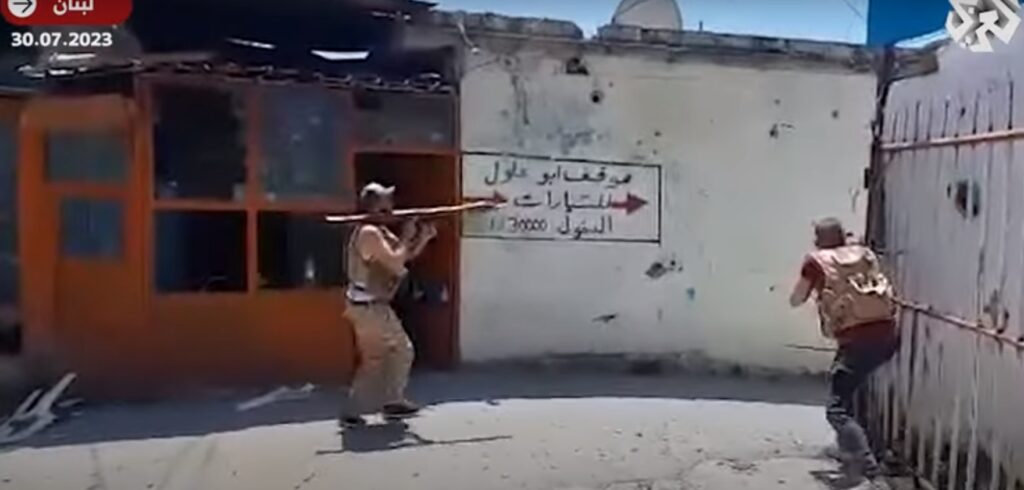Najib Mikati, Lebanon’s interim prime minister, contacted PA Chairman Mahmoud Abbas late last week to discuss the latest developments in the Ein Al-Hilwa refugee camp, situated near the city of Sidon, following the recent escalation of hostilities.
Mikati conveyed to Mahmoud Abbas that the ongoing situation in the refugee camp does not serve the Palestinian cause and inflicts significant harm on Lebanon, particularly the city of Sidon.
He stressed the importance of Palestinians adhering to Lebanese laws and maintaining peace among its citizens.
In the past few days, three armed militants and one civilian lost their lives in clashes between Fatah activists and members of radical Islamic groups.
On August 29th of this year, the Ein Al-Hilwa refugee camp witnessed a five-day battle resulting in 13 fatalities.
The conflict ceased only with the intervention of the Hezbollah organization and the Lebanese government.
Notably, during that conflict, General Abu Ashraf Al-Aramoushi, a senior member of the Fatah movement and commander of the national security forces in Sidon, was fatally shot.
The Lebanese army called for an immediate ceasefire, but its appeal went unanswered. Under an agreement between the Palestine Liberation Organization (PLO) and the Lebanese government, Lebanese military forces are not permitted to enter Palestinian refugee camps. Instead, the maintenance of security in these camps falls under the purview of Palestinian factions through a joint security force.
In the wake of these recent battles, approximately 250 residents have fled the Ein Al-Hilwa refugee camp, which is home to around 45,000 Palestinian refugees.
The Fatah movement has accused extremist Islamic groups affiliated with Al-Qaeda and ISIS, whose members have crossed over from Syria, of attempting to seize control of the camp—the largest of its kind in Lebanon.
High-ranking officials in Lebanon contend that the camp’s conflict erupted following the visit of the head of Palestinian intelligence, Majed Faraj, to Beirut last month, during which he held discussions with senior officials in the Lebanese government.
The PA is actively working to reinforce its control within Lebanese refugee camps, thwart the takeover attempts by jihadist Islamic groups and Hamas, and establish new Fatah leadership, thereby neutralizing the centers of power aligned with Muhammad Dahlan, a political rival of PA Chairman Mahmoud Abbas.
PA Chairman Abbas is striving to strengthen his position among Palestinian refugees in Lebanon.
According to Lebanese sources, the head of Palestinian intelligence, Majed Faraj, brought substantial financial resources to Lebanon to garner support from Fatah activists within the refugee camps.
The Palestinian Authority is apprehensive that the extremist Islamic elements’ potential takeover of the Ein Al-Hilwa refugee camp in Lebanon could set a perilous precedent for other refugee camps in the country.
The ongoing conflict is likely to persist, as the Fatah movement is determined to prevent extremist Islamic organizations from seizing this crucial power base in Lebanon.




